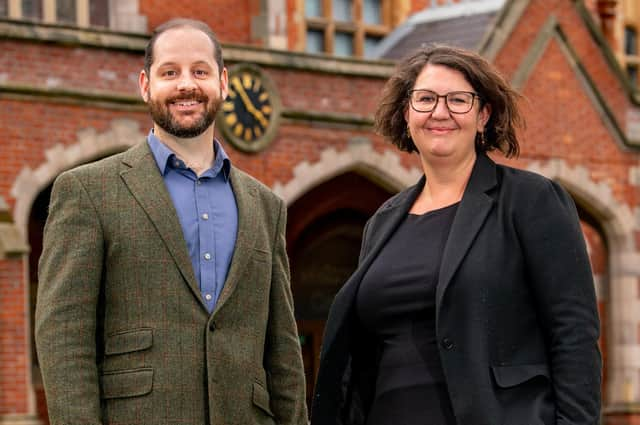Census Northern Ireland: Academic gives warning over figures showing rise in ‘atheism’


Census figures released last week show that 17.4% of the NI population (331,000) now have “no religion” – an increase on the 10.1% figure 10 years ago. This is slightly more than the 16.6% of Presbyterians (316,000), the largest Protestant denomination in NI.
Northern Ireland Humanists said the figures show the non religious should now have ‘a seat at the table’ at Stormont, and called for reform of compulsory Christian RE and worship in NI schools.
Advertisement
Hide AdAdvertisement
Hide AdHowever, Dr Lois Lee, who is helping lead a new research project at Queen’s University Belfast (QUB) into the rise of global atheism, warned that caution should be used in drawing firm conclusions from the census figures.
While the census asked people whether they had any religion, she said, those without any religious affiliation were not necessarily atheists.
“One thing that is relevant to the census is that saying you have no religion and being a nonbeliever are conflated and they are not the same thing,” she told the News Letter.
It was possible that people who have no ties with religious institutions may still have a personal faith, she added.
Advertisement
Hide AdAdvertisement
Hide Ad“On the census the key bit of data was about your religious affiliation – are you affiliated to the church or do you have no religion? So that is about your identity and your relationship with a religious institution. It doesn’t tell us anything about whether you are a believer or not.”
She acknowledged, however, that in the UK “if you say you have no religion you are disproportionately likely also to be a nonbeliever”.
She added that some people who have religious beliefs say they have no religion because they have various reasons for having particular relationships with religious identities. “So we shouldn’t be reporting the census by saying that it tells us anything about non-belief.”
Dr Lee lectures on secularism at the University of Kent. Together with QUB lecturer in cognitive anthropology, Dr Jonathan Lanman, they are leading the QUB ‘Explaining Atheism’ project, to understand how and why atheism and agnosticism are growing across the world. The project has been granted £2.7m by the John Templeton Foundation over three years.
Advertisement
Hide AdAdvertisement
Hide AdThe core research will focus on Brazil, China, Denmark, Japan, the UK, and the USA, with a wider team investigating Egypt, Tunisia, Morocco, Saudi Arabia, United Arab Emirates, Lebanon, New Zealand, Republic of Ireland, Norway, Sweden, Finland, Mauritius and Poland.
Dr Lee said the project will include “strong agnostics” in the same category as atheists because they are so similar.
A popular theory the team will test is that the rise of atheism is closely related to education levels.
“The theory is that if children are exposed to more scientific education they will therefore become atheist,” she said. “We think there is good reason to think there are a lot more complex processes going on there, whilst we also think there is good reason to think education matters.”
She says about half the UK population “have no belief in God”.